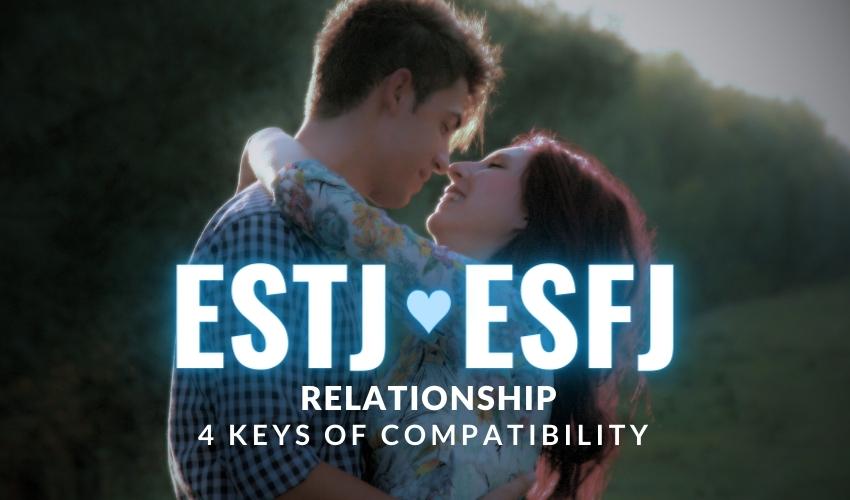A logical fallacy is a form of rhetoric that is deemed invalid or provides an insufficient basis for an argument. It is often used defensively to deflect guilt or justify one’s actions and beliefs in a deceptive way. Logical fallacies can be very persuasive and the people who use them may either be genuinely convinced of their soundness or willfully manipulating the truth to serve their duplicitous ends.
Most of us are guilty of using specious reasoning of one form or another. The logical fallacies we use may likely be a reflection of the cognitive biases we hold and our cognitive biases are likely reflective of, or consistent with, our Myers-Briggs type. Here is an assessment of the logical fallacy you might be guilty of using based on your Myers-Briggs personality type.
INTP
Composition/Division Fallacy – This fallacy is an assumption that what is true for the whole must also be true for it’s constituent parts or vice versa. INTPs being a type that devotes a great deal of their mental energies to sussing out the underlying core principles of almost everything they take interest in, do so in order to create a mental model that is consistent and allows them to accurately predict and evaluate concepts across various contexts and circumstances. INTPs therefore, may on occasion make an error of assumption as to the applicability of a given principle to a group relative to it’s parts.
Example: Mistakenly assuming that because every Jamaican person you’ve ever seen on TV happened to wear dreadlocks, that therefore most, if not all Jamaicans probably wear dreadlocks in real life (stupid example I know, but as a kid, I had an assumption that it was some sort of cultural requirement).
INTJ
No True Scotsman – The No True Scotsman is a logical fallacy whereby an opponent attempts to undermine the legitimacy of another’s claims by concluding it to be inconsistent with the “true” or ideal standard. My reason for attributing this fallacy to INTJs comes from the type of “groupthink” that goes on in the comments section of INTJ Facebook groups. It seems a lot of INTJs try to out-INTJ each other and engage in INTJ-signaling (which is like virtue-signaling but instead trying to signal how supreme and arrogant they are). Many of these supposed INTJs seem to have a pretty fixed idea about what is and isn’t a true INTJ.
Example: “No true INTJ would take astrology seriously blah blah blah” or “No true INTJ would ever make that grammatical error yada yada yada”)
ENTP
Straw Man Fallacy – This tactic is an attempt to grossly misrepresent or oversimplify an opponent’s argument to make it easier to attack. This tactic is often done deliberately to avoid dealing with the real substance and nuance of an opponent’s argument and put them on the defensive as they try to redress the false representation. ENTPs are types that may likely excel at debate and this ability can be used for both good or bad. They are probably very crafty litigators and depending on what they are arguing for, may resort to all types of tricks such as the straw man, to win.
Example: Jamie expressed how nice it would be if she didn’t have to work a crumby 9-5 job and could focus on writing novels, to which Amy-the-hater replied: “So you wanna sit around all day living on welfare while hard-working people pay for it with their tax money?”
ENTJ
Slippery Slope Fallacy – This fallacy is the assumption that if one event occurs, it will inevitably lead to a certain outcome. If A happens, then it will trigger a succession of events that will ultimately lead to Z. This assumption does not account for the possibility of stoppage before Z occurs. A person, for instance, may avoid smoking because they fear that if they take even one drag of a cigarette they will become addicted and ruin their health permanently. ENTJs may display such deterministic thinking since Ni is a function that foresees and envisions probable or at least possible, outcomes. They may exhibit tunnel vision in this regard and get caught up with a fear of events unfolding in a particular way.
Example: The NRA supporter believed a ban of firearms would be the first step in what would lead to the New World Order regime planned by the guberment.
INFP
Appeal To Emotion – The appeal to emotion fallacy is an attempt to use emotional manipulation rather than cogent reasoning as support for one’s claims. INFPs routinely defer to their subjective moral compass in guiding their decisions thus allowing extemporaneous feelings to weigh more heavily than empirical principles. Because the emotional impact of an argument has such strong significance for them, they may in turn use this to argue their own cases. While the influence of feelings such as pity, hatred, and jealousy are compelling to us as emotional creatures, they are not rational justifications nor qualify as a valid basis for arguments.
Example: An employer decides to hire the much lesser qualified of two job applicants merely because they feel sorry for them.
INFJ
Special Pleading – This logical fallacy is basically a type of excuse, that attempts to post-facto rationalize a claim that failed to materialize. Rather than admit fault, a failed claim is attributed to reasons that essentially cast blame on others or to special exceptions. I don’t mean to offend INFJs, but my reasoning for attributing this logical fallacy to them is partly because of Hitler (a reputed INFJ). During the 1936 Olympics hosted in Berlin, the Fuhrer had pretty lofty expectations for Germany’s genetically supreme athletes, but when the african American Jesse Owens dominated the track & field, Adolf must have been sorely disappointed and forced to reassess his notions about racial supremacy.
Example: After his doomsday prophecy failed to come true, the self-professed prophet explained that God simply decided to postpone the apocalypse until further notice.
ENFP
Anecdotal Fallacy – The anecdotal fallacy is an argument that relies on the testimony of someone’s personal experiences as valid evidence for their claim. This is a fallacy because, as you may be aware, our perceptions of events isn’t always reliable. There have been experiments that have shown our senses to sometimes deceive us especially when under emotionally or adrenaline charged circumstances. Examples of this could be any number of the dubious UFO sightings and supposed alien abductions that get reported. ENFPs could be one of those people who are inclined to believe the story that stranger once told them of how he not only spotted bigfoot, but also got close enough to smell him – and he smells like fig newtons.
Example: The prosecutor asserted that aliens are interstellar sexual-predators and to prove it, he called to the stand, Cleetus Huckleberry, a man who swore up and down that aliens once entered his bedroom at night and probed every inch of him.
ENFJ
Begging the Question – Begging the question is a form of circular reasoning where the conclusion of an argument is embedded within it’s premise. It assumes to be true the very thing it’s trying to prove and is basically a thinly veiled tautology. ENFJs may be guilty of this due to the social values they take for granted and promote because they are more interested in virtue signaling and appearing perfect. Their interests are generally aligned to those of the group with which they identify and the values therein become axiomatic truths that they will champion and uphold.
Example: McDonald’s food is good for you because it’s actually not that unhealthy.
ISTJ
Black or White Fallacy – This logical fallacy is an attempt to falsely frame a situation as being a matter of “either this or that” as though no alternative options or perspectives exist. This is a type of overly simplistic rationale that fails to acknowledge or recognize alternate possibilities and seeks to boil things down into very reductive terms so as to avoid thinking more deeply about an issue. ISTJs may be guilty of this due to their inferior Ne which likely impairs their ability to consider multiple contingencies that require a certain amount of creative, divergent thinking. Their dominant Si suggests that they have an inclination towards going about things in a clear and “correct” way. Their memories are oriented towards storing data and remembering ordered sequences as they were meant to be remembered and so they are less willing to entertain hypothetical potentiations. Order gives ISTJs comfort and having to juggle multiple possibilities threatens their sanity.
Example: The politician declared that if you are not in support of him, you are in support of the enemy.
ISFJ
Appeal To Authority – This logical fallacy is the assumption that because a claim comes from an authoritative source, it must be true. This is not to dismiss the credibility or veritability of an expert’s claims, but the credentials or authority of a person does not make their claims intrinsically true or untrue. Using the appeal to authority can provide persuasive support for an argument especially if the source is reputable, and reasoning sound, but an authority or expert is not in and of themselves, evidence or proof. ISFJs being Si doms as well as auxiliary Fe users, likely place high value on social order and being a type that is less intellectually-motivated, are probably more willing to outsource or subordinate their critical thinking to that of someone they admire or respect as more knowledgeable and authoritative than they.
Example: 8 year old Madison insists that Santa Clause exists because her Mom told her this.
ESTJ
Appeal To Tradition – This fallacy says that something is justified, good or valid because it is customary. This is not a true justification for anything and may only be accepted to the extent to which it is reasonable or tolerable. ISTJs and ESTJs are inclined to defer to tradition and custom as part of their Si preference. For them, it is probable that they use this as justification for how they go about things because they are conservative and not among the types inclined to deviate from convention or reinvent the wheel like say, an ENTP. ESTJs are not quite as innovative, but are highly capable of learning, implementing and building on the innovations of others.
Example: The way we do things around here is antiquated and inefficient but damnit, my father did it this way and so did my father’s father and his father’s father and his father’s father’s father…. I don’t know no other way… please help… me…
ESFJ
Middle Ground Fallacy – The middle ground fallacy is the reasoning that if you have two diametrically opposed claims, then the truth must be something in between. This treats the opposing arguments as being two halves of the truth and avoids declaring either side as being completely wrong. This is probably the type of litigatory compromise an ESFJ might make. ESFJs with their dominant extraverted feeling, dislike conflict and interpersonal disharmony and their approach to arbitration is to settle disputes in a way that makes everyone happy. They are not necessarily interested or concerned with determining the objective truth, but simply want to achieve a positive resolution and sense of closure. The middle ground fallacy is not a necessarily valid rationale because if one or both claims are false, a middle-of-the-road claim may be equally untrue.
Example: Tom insisted that cashews are technically not a nut but a type of fruit and Valerie contests that it is a vegetable. Carol concluded that it is probably both fruit and vegetable – a fruitable.
ISTP
Tu Quoque – This is the “and you too” fallacy also known as the appeal to hypocrisy and is basically an attempt to undermine the argument of another person by pointing to their failure to live up to it in their own lives. Hypocrisy aside, whether or not someone happens to practice what they preach doesn’t refute the validity of their arguments, it should only bar them from casting judgment or being critical of others about it. Just because someone isn’t living up to the ideal they are promoting shouldn’t be a reason to dismiss the merit of their point. ISTPs may do this simply because they are not that keen on people telling them what to do anyway, especially if they sense that there is a double-standard.
Example: That guy has like, 7 DUIs, who’s he to tell me it’s not a good idea to drink and drive?
ISFP
Ad Hominem Fallacy – This fallacy is an attempt to undermine an opponent’s argument by attacking the person making the argument rather than the argument itself. This is a fallacy because the character of a person has little bearing on the validity of their arguments. This is typically a tactic used to put opponents on the defensive and understandably invoke their indignation. Because ISFPs are rather sensitive and emotional, they are probably prone to making personal attacks in response to criticism as well as insulting an opponent’s personal appearance, pointing out their lack of popularity or bringing up their past mistakes rather than make a cogent, compelling counter-argument.
Example: In response to the accusations leveraged against him, the defendant accused his interlocutor of being a wife-beater with crooked teeth.
ESTP
Red Herring – A Red Herring fallacy is a form of deflection where an opponent responds to an argument by bringing up a different argument that is irrelevant and separate from the issue at hand. This is a way of skirting the issue and trying to redirect attention elsewhere so as to either minimize the significance of the actual argument or simply distract from it. People who use it are usually trying to shift blame or away from themselves or to change the direction of a discussion to a position that is more favorable for them. ESTPs may be guilty of using this to justify hasty and ill-thought out decisions for which they may receive a lot of heat and criticism.
Example: “I mean yeah, I guess I was driving a little too fast officer, but there are worst crimes being committed in the world, you ought to be focusing on that instead.”
ESFP
Appeal To Nature – The appeal to nature fallacy is one that assumes that because something is natural, it is therefore good, valid or justified. The naturalness of something cannot serve as justification if it violates or threatens higher priority values. For instance, it would be absurd to reason that a sociopath should not be held accountable for killing because they are naturally inclined towards depravity. Their empathy-impaired neurochemistry is hard-wired for doing things like that and thus it is their nature. But this “nature” is deemed intolerable in a civilized society and so corrective action must be taken. ESFPs being the sensation-seeking/attention-seeking adventurers they are, may utilize the appeal to nature argument to justify their impulsive and incorrigible behavior. Their Fi will try to justify itself because they ultimately want to be accepted for who they are and be true to themselves as nature intended.
Example: There were malaria-carrying mosquitos everywhere, but the tourists didn’t mind letting the blood-suckers bite them because, you know, that’s what mosquitos do.
Please share this post and subscribe for future updates 🙂
- Source: https://www.logicallyfallacious.com/tools/lp/Bo/LogicalFallacies/29/Appeal-to-Emotion
- Source: https://yourlogicalfallacyis.com/
- Source: https://en.wikipedia.org/wiki/List_of_fallacies
- Source: https://yandoo.wordpress.com/2014/04/07/fallacies-of-composition-and-division/
Related posts:
- The Annoying Qualities Of Each Myers Briggs Type
- The Worst Traits of Each Zodiac Sign
- The Worst Fears of Each Myers Briggs Type
- MBTI Stress | The 16 Types When Overwhelmed With Stress
- The Defense Mechanism Each MBTI Personality Is Likely to Use
- The Weirdest Traits In Each Myers Briggs Type
- ISFJ and ISTJ in love: 5 Essential Dynamics of their Relationship - February 24, 2024
- ENTP and ENTJ in love: 6 Critical Dynamics of Their Relationship. - February 18, 2024
- ESTJ and ESFJ in love: 4 Key Aspects of their Relationship. - February 12, 2024






This is a fantastic article. I would not have changed a single one of these had I written this myself, and I’ve seen every single one of these logical fallacies used by the types you ascribed to them at some point. Good job, man.
Thanks, I appreciate that 🙂